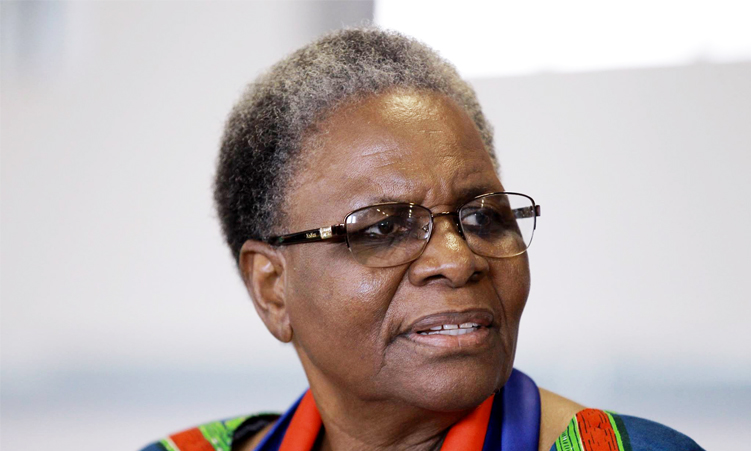The lack of appreciation of cultural and traditional norms and beliefs across boundaries are some of the challenges to regional integration efforts in Southern Africa, Trade and Industry Minister Hage Geingob says.
In a speech read on his behalf by the Deputy Director for Projects and Incentives at the Namibia Investment Centre, Freddie !Goaseb, at the Agricultural Trade Forum (ATF) 15th public dialogue in the capital on Wednesday, the minister said some of these challenges are from within and by external forces, and they are the most apparent ones at the different levels of development among countries of the region. “Some challenges are language barriers, underdeveloped mechanisms for joint governance, lack of infrastructure for intra-regional services including transportation, telecommunications and financial transactions, and more importantly overlapping memberships that result in duplication of efforts and overstretching of limited resources,” said Geingob.He said the regional integration agenda is under constant pressure by globalisation, including the international trade rules under the World Trade Organisation (WTO), which are being shaped more by the developed world to suit their own economic agenda.”An additional diversion of attention from regional integration comes in the form of liberalisation demands through initiatives such as the Economic Partnership Agreements (EPAs) between regions of the African, Caribbean and Pacific countries with the European Union (EU), and the now suspended negotiations for a Free Trade Agreement (FTA) between the Southern African Customs Union (SACU) members and the United States of America (USA),” Geingob said.These initiatives have the potential to pre-empt regional integration in most crucial features, such as liberalisation sequencing, common external tariff setting and institutional set-ups.He said SACU and SADC are the two organisations at the core of Namibia’s drive towards regional integration.The 2002 SACU Agreement, the SADC Treaty and several SADC Protocols have been ratified by the Namibian Parliament, and therefore are an integral part of the national laws.Hence, he said, the government prioritises and supports the full implementation of the programmmes and projects initiated under these organisations with a view to advance the regional integration agenda.At the regional level, Geingob said Namibia advocates complementarities between SACU and SADC.”Namibia strives to participate in SADC market liberalisation and integration programmes through SACU,” the minister noted.SACU countries have jointly liberalised their markets for other SADC countries, and have adopted a common position towards creating a SADC Customs Union.”The SADC Customs Union involves concretising SACU’s own integration by fully implementing the agreement, and positioning SACU to serve as a nucleus for SACU,” Geingob said.Nampa”Some challenges are language barriers, underdeveloped mechanisms for joint governance, lack of infrastructure for intra-regional services including transportation, telecommunications and financial transactions, and more importantly overlapping memberships that result in duplication of efforts and overstretching of limited resources,” said Geingob.He said the regional integration agenda is under constant pressure by globalisation, including the international trade rules under the World Trade Organisation (WTO), which are being shaped more by the developed world to suit their own economic agenda.”An additional diversion of attention from regional integration comes in the form of liberalisation demands through initiatives such as the Economic Partnership Agreements (EPAs) between regions of the African, Caribbean and Pacific countries with the European Union (EU), and the now suspended negotiations for a Free Trade Agreement (FTA) between the Southern African Customs Union (SACU) members and the United States of America (USA),” Geingob said.These initiatives have the potential to pre-empt regional integration in most crucial features, such as liberalisation sequencing, common external tariff setting and institutional set-ups.He said SACU and SADC are the two organisations at the core of Namibia’s drive towards regional integration.The 2002 SACU Agreement, the SADC Treaty and several SADC Protocols have been ratified by the Namibian Parliament, and therefore are an integral part of the national laws.Hence, he said, the government prioritises and supports the full implementation of the programmmes and projects initiated under these organisations with a view to advance the regional integration agenda.At the regional level, Geingob said Namibia advocates complementarities between SACU and SADC.”Namibia strives to participate in SADC market liberalisation and integration programmes through SACU,” the minister noted.SACU countries have jointly liberalised their markets for other SADC countries, and have adopted a common position towards creating a SADC Customs Union.”The SADC Customs Union involves concretising SACU’s own integration by fully implementing the agreement, and positioning SACU to serve as a nucleus for SACU,” Geingob said.Nampa
Stay informed with The Namibian – your source for credible journalism. Get in-depth reporting and opinions for
only N$85 a month. Invest in journalism, invest in democracy –
Subscribe Now!






